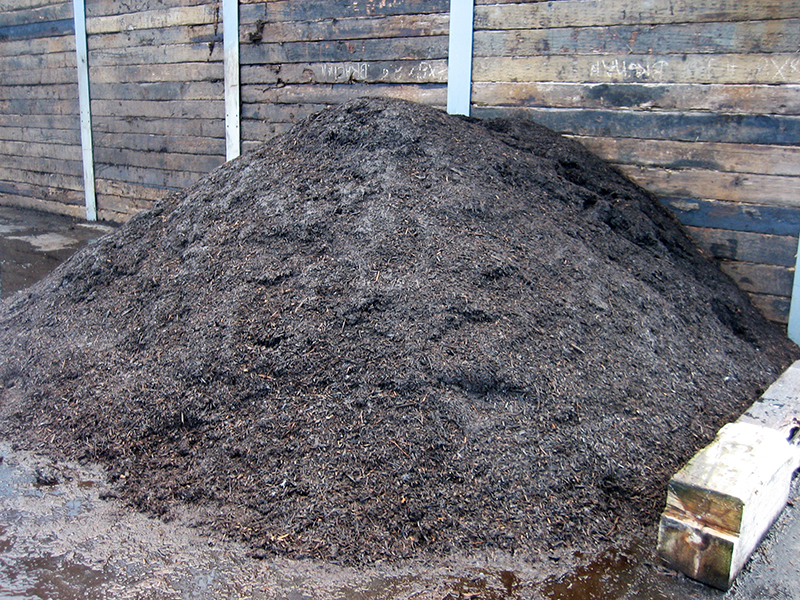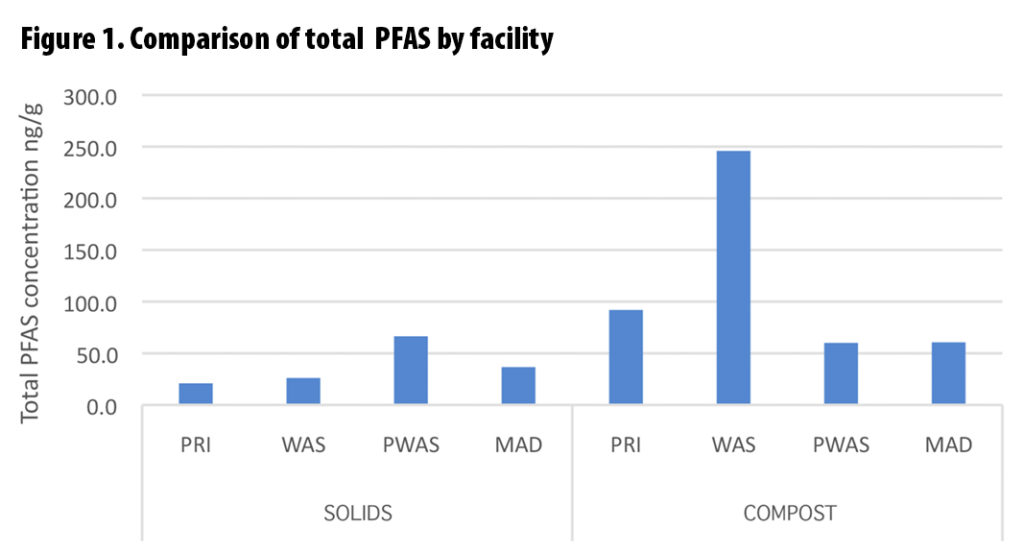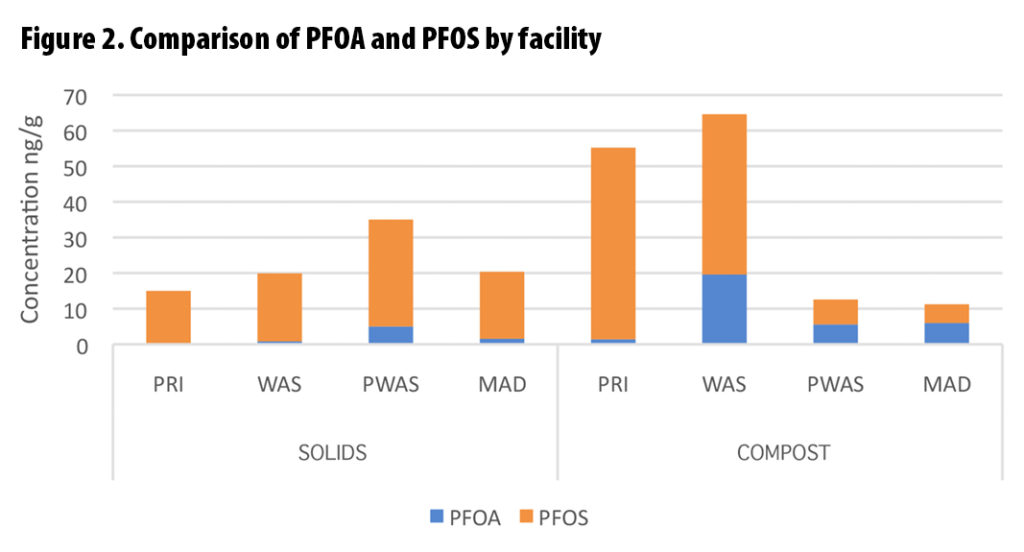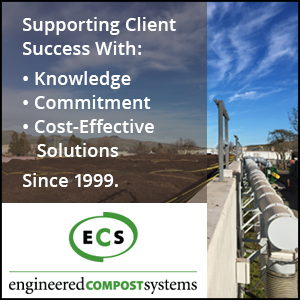Todd O. Williams

Treated solids, bulking agent and biosolids compost from a small sampling of facilities were tested to evaluate the fate of PFAS through the processes. Photos courtesy of Todd Williams.
To develop a better understanding of the effect composting wastewater solids has on per and polyfluoroalkyl substances (PFAS) concentrations within biosolids composts, Jacobs, a global engineering company, recently conducted sampling of a small group of biosolids composting operations. The wastewater treatment systems where biosolids composts were generated have minimal industrial contributions in their collection systems. In general, PFAS concentrations in the dewatered wastewater solids tested are consistent with data reported in the literature for non-industrially impacted wastewater systems.
Methodology
Dewatered solids, bulking agents and composts were sampled and tested for 24 PFAS compounds measuring to concentrations below 2 ng/g (parts per billion) on a dry weight basis. Solids produced from four different wastewater treatment process schemes were compared:
- Primary treatment producing primary solids only (PRI)
- Conventional secondary treatment with nutrient removal, producing a mixture of primary and waste activated solids (PWAS)
- Conventional secondary treatment with nutrient removal, producing waste activated solids only (WAS)
- Conventional secondary treatment, producing a mixture of primary and waste activated solids, which was then processed through mesophilic anaerobic digestion (MAD)
It is believed that clean bulking agents such as ground brush, wood chips, ground pallets and similar materials will exhibit a diluting effect on the concentration of PFAS in wastewater solids. This has been observed in some instances. However, biotransformation of precursor compounds through the aerobic composting process may occur more readily in some solids resulting in higher concentrations of measured PFAS in the resultant biosolids composts. Figure 1 shows PFAS, and Figure 2 shows PFOA and PFOS concentrations in the incoming solids and the resultant biosolids composts.
Observations
Observations from this sampling and testing effort revealed the following:
- Perfluorooctanesulfonic acid (PFOS) is the most commonly detected PFAS in all materials (wastewater solids, bulking agents and composts), accounting for between 30% and 75% of the measurable concentrations of PFAS in the dewatered solids.
- PFAS concentrations in new bulking agents (i.e., not recovered via screening and recycled back into process) were significantly lower than in bulking agent mixtures of new and recycled bulking agent.
- Primary sludge that had not been treated aerobically appears to be more susceptible to precursor transformation and concentrations of terminal PFAS (i.e., measured compounds on the current analyte list such as PFBS, PFHxA, PFOA, and PFOS), which increased after composting.
- Aerobically processed solids and anaerobically digested solids appear to result in less precursor transformation during composting and concentrations of terminal PFAS are similar before and after composting.
Join In The Testing
This sampling and testing effort demonstrated the difference in PFAS concentrations between dewatered solids and the resultant composts produced. Jacobs is analyzing data from multiple composting operations to better understand the fate of PFAS through the wastewater treatment and composting processes. If your facility receives municipal biosolids and you are interested in having your materials tested and participating in this evaluation, please email Todd Williams and more details will be provided on the opportunity. The sources of data derived from this evaluation will be kept confidential. A more rigorous analysis of this data is planned in an upcoming edition of BioCycle CONNECT.
Todd Williams is a senior principal technologist at Jacobs with 40 years of sludge composting experience.
















